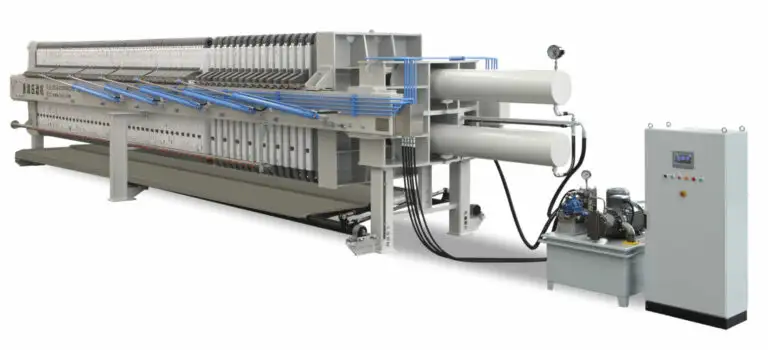Gravity Filtration vs Suction Filtration: Which Method Is Best for Industrial Solid-Liquid Separation?
Nov 17, 2025
What Is Gravity Filtration and When Should You Use It?
Gravity filtration is a simple and widely used solid–liquid separation method that relies solely on gravity to pull liquid through a filter medium. It is commonly applied in laboratory environments, low-volume processing, and situations where the suspended solids are coarse enough for easy separation.
Because it does not require vacuum systems or additional mechanical force, gravity filtration is cost-effective and suitable for small-scale operations. It is often used in:
- Basic chemical filtration
- Removing precipitates from solutions
- Processing non-viscous liquids
- Filtration tasks where high clarity is not the primary requirement
However, its limitations—slow filtration speed, lower efficiency, and reduced suitability for fine particles—make it impractical for industrial filtration lines that require continuous, high-throughput performance.
When industries upgrade from gravity systems to more advanced equipment like a filter press, they typically see dramatic improvements in cycle speed, solid dryness, and system automation.
Understanding Suction Filtration and Its Industrial Advantages
Suction filtration uses a vacuum pump to create negative pressure below the filter medium, allowing liquid to pass through significantly faster. This method is essential for industrial-scale operations where efficiency and throughput matter.
Key advantages include:
- Faster filtration cycles compared with gravity methods
- Superior solid-liquid separation quality
- Better handling of viscous liquids or fine particles
- Stable processing suitable for continuous or semi-continuous operation
This makes suction filtration ideal for industries such as pharmaceuticals, fine chemicals, wastewater treatment, mining, food processing, and metallurgy.
For buyers who operate high-volume production lines or require strict moisture-control in filter cakes, choosing vacuum-assisted equipment or an industrial filter press ensures consistent output and cost-efficiency.
Gravity Filtration vs Suction Filtration — Which Is Right for Your Process?
When comparing the two techniques, several practical factors matter to B2B customers: production capacity, energy usage, space requirements, and the nature of the slurry.
1. Filtration Speed
- Gravity: slow, ideal for small batches
- Suction: fast and efficient, suitable for continuous industrial use
2. Processing Capacity
- Gravity: low-volume
- Suction: high-volume, capable of processing large slurry quantities
3. Filtration Precision
- Gravity: limited precision with fine particles
- Suction: effective for fine solids and viscous materials
4. Operational Cost
- Gravity: lower initial cost, higher labor depending on batch operations
- Suction: higher equipment cost, lower long-term cost per cycle
5. Application Suitability
- Gravity: educational labs, small workshops, simple chemical filtration
- Suction: industrial plants requiring efficiency and dryness
In modern industrial workflows, suction filtration and automated filtration systems offer a clear advantage, especially when combined with large-scale process engineering or environmental compliance requirements.
Why Industrial Plants Are Moving Toward Automated Press Filtration
Industrial buyers are increasingly replacing traditional gravity filtration with high-efficiency press filtration systems. This shift is driven by the need for:
- Reduced processing time
- Higher filtration precision
- Better water recovery
- Lower maintenance costs
- Consistent filtration cycles
Industrial filtration equipment—especially modern filter press systems—can operate with minimal labor, programmable automation, and predictable output quality. This is why many industries choose to upgrade to advanced filtration solutions for long-term economic benefits.
Jingjin — Your Trusted Partner in Industrial Filtration Solutions
Jingjin is a global leader in solid–liquid separation technology with decades of experience serving chemical, pharmaceutical, food, mining, wastewater treatment, and environmental industries.
We provide:
- Full lines of filter press equipment, including chamber, membrane, and high-pressure units
- Customized filtration solutions for various industries
- Advanced automation technology (automatic plate shifters, drip trays, cloth cleaning systems)
- Reliable after-sales support and engineering services
With strong R&D capacity, strict quality control, and installations in more than 140+ countries, Jingjin delivers high-performance filtration solutions designed for durability, efficiency, and long-term value.
If you are planning to upgrade your filtration system, explore our product lines and contact our technical team for tailored solutions.

